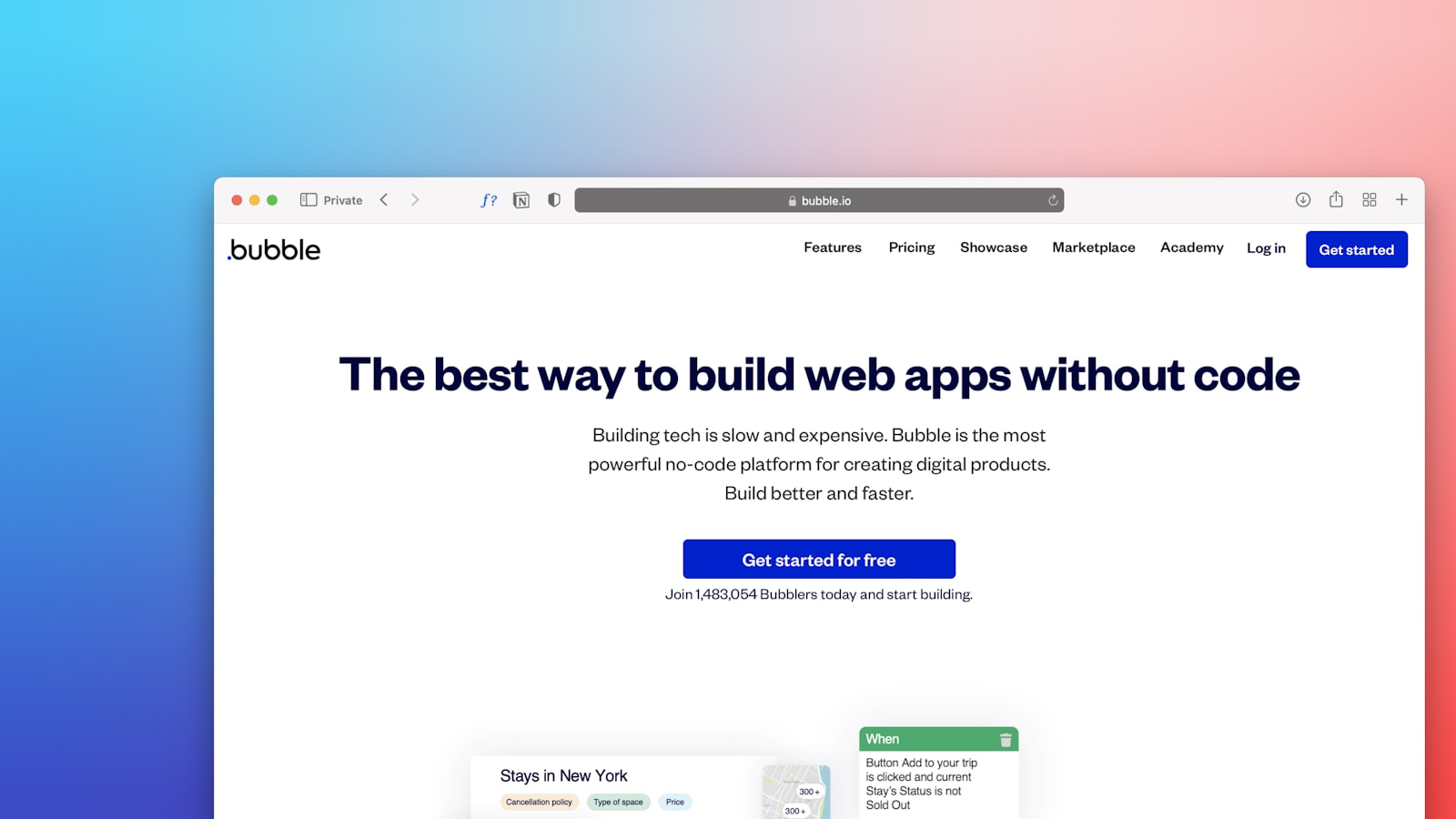What are Organic Keywords? Understanding the Concept and Benefits
What are Organic Keywords? Understanding the Concept and Benefits
What are Organic Keywords? Understanding the Concept and Benefits
Discover what organic keywords are and understand their concept and benefits for your SEO strategy. Learn how to boost your site's visibility naturally.
Discover what organic keywords are and understand their concept and benefits for your SEO strategy. Learn how to boost your site's visibility naturally.



1. Introduction
What are Organic Keywords?
Ever wondered how some websites magically appear at the top of your Google searches? Spoiler alert: it’s not magic, it’s organic keywords! But what are organic keywords, you ask? Simply put, they’re the words and phrases people type into search engines naturally. No ad dollars required. Think of them as the unsung heroes of SEO, quietly working behind the scenes to boost your website’s visibility.
Importance of Organic Keywords in SEO
Why should you care about organic keywords? Well, if you’re tired of burning cash on paid ads, organic keywords are your new best friends. They help your site rank higher on search engines without costing a dime. Yup, you heard that right. By strategically using these keywords, you can drive more organic traffic, convert more leads, and maybe, just maybe, stop relying on those pesky paid ads. Sounds like a win-win, doesn’t it?
In this article, we’ll break down the concept of organic keywords, how they differ from their paid counterparts, and why they’re crucial for your SEO strategy. Buckle up, because we’re about to make your website a traffic magnet!
Differences Between Organic Keywords and PPC Keywords
What Are PPC Keywords?
Pay-Per-Click (PPC) keywords are terms that advertisers bid on to display their ads in search engine results. When a user clicks on one of these ads, the advertiser pays a fee. Think of it as a shortcut to the top of the search results, but it comes with a price tag.
PPC keywords are typically used in Google Ads campaigns and other paid search platforms. They can be highly effective for driving traffic quickly, but they require a budget and constant management to ensure you’re getting a good return on investment (ROI).
Key Differences and Benefits
Understanding the differences between organic keywords and PPC keywords can help you decide which strategy is best for your business. Here are the key distinctions:
Cost: Organic keywords are free, while PPC keywords require a budget.
Longevity: Organic keywords can drive traffic over the long term, whereas PPC keywords only work as long as you keep paying for them.
Trust: Users often trust organic results more than ads, leading to higher click-through rates (CTR) for organic listings.
Speed: PPC keywords can generate immediate traffic, while organic keywords take time to rank and drive traffic.
Maintenance: Organic keywords require ongoing SEO efforts, but PPC keywords need constant budget adjustments and performance monitoring.
Both strategies have their benefits. For instance, using PPC keywords can be a great way to quickly test the effectiveness of certain keywords before committing to a long-term SEO strategy. On the other hand, organic keywords are essential for sustainable growth and building long-term authority in your niche.
For more insights on keyword strategies, check out our guide on Programmatic SEO for B2B SaaS and Ecommerce.

How to Find Organic Keywords
Using Keyword Research Tools
Semrush Keyword Magic Tool
Semrush’s Keyword Magic Tool is a powerhouse for finding organic keywords. Simply enter a relevant term, and it will generate a list of keyword ideas along with essential metrics like search volume, keyword difficulty, and competitive density. This tool helps you identify high-potential keywords to target, ensuring your content is optimized for search engines.
WordStream’s Free Keyword Tool
If you're on a budget, WordStream’s Free Keyword Tool is a fantastic alternative. By entering a keyword, you can receive a list of related keywords along with their search volume and competition level. This tool is particularly useful for small businesses and startups looking to improve their SEO without breaking the bank.
Analyzing Competitors' Keywords
Using Semrush’s Organic Research Tool
Understanding what keywords your competitors are ranking for can give you a strategic advantage. Semrush’s Organic Research Tool allows you to see which keywords are driving traffic to your competitors' sites. By analyzing these keywords, you can identify gaps in your own strategy and discover new opportunities for optimization.
Leveraging Google Tools
Google Search Console
Google Search Console is a free tool that provides valuable insights into your website's performance. To find organic keywords, navigate to the “Search Results” report and filter for positions greater than 10. This will show you keywords that your site ranks for but are not yet in the top 10, giving you a chance to optimize and improve their rankings.
Google Analytics 4
Google Analytics 4 (GA4) is another essential tool for keyword research. By analyzing the organic search traffic report, you can identify which keywords are driving visitors to your site. GA4 also allows you to track user behavior and engagement, helping you refine your keyword strategy based on actual user data.

For more detailed guidance on finding scalable keywords, check out our ultimate guide for B2B SaaS and Ecommerce.
How to Optimize Your Website for Organic Keywords
On-Page SEO Techniques
Incorporating Keywords in Content
To make your content SEO-friendly, naturally include your target keywords throughout the text. Aim for a seamless integration that feels organic to the reader. For example, if you're writing about organic keywords, sprinkle this term in your headings, subheadings, and body text without overdoing it.
Optimizing Title Tags and Meta Descriptions
Your title tags and meta descriptions are the first things users see on search engine results pages (SERPs). Make sure to include your primary keywords here to improve click-through rates. For instance, a title like How to Optimize Your Website for Organic Keywords is straightforward and keyword-rich.
Structuring URLs and Headings
Keep your URLs short and keyword-rich. For example, use www.yoursite.com/organic-keywords instead of www.yoursite.com/12345. Similarly, use keywords in your headings and subheadings to help search engines understand the structure and relevance of your content.
Creating High-Quality Content
Avoiding Keyword Stuffing
Keyword stuffing is a big no-no in SEO. It not only makes your content unreadable but also risks penalties from search engines. Aim for a keyword density of around 1-2% and focus on providing valuable information to your readers.
Developing Cornerstone Content
Cornerstone content is comprehensive, high-quality content that serves as the foundation of your website. These are the go-to articles that provide in-depth information on key topics. For example, a detailed guide on What Are Organic Keywords? can serve as cornerstone content for an SEO-focused site.
Enhancing Internal and External Linking
Importance of Internal Links
Internal links help distribute page authority and guide users through your site. Use keyword-rich anchor text for these links. For instance, linking to a related post on programmatic SEO can provide additional value to your readers.
Building External Backlinks
External backlinks from authoritative sites can significantly boost your SEO. Reach out to industry blogs, participate in guest posting, and create shareable content to earn these valuable links. For example, a well-researched article on keyword modifiers can attract backlinks from other SEO blogs.

Monitoring and Adjusting Your Keyword Strategy
Tracking Keyword Performance
Using Semrush’s Position Tracking Tool
Keeping an eye on your keyword rankings is like checking your stock portfolio—crucial for making smart decisions. Semrush’s Position Tracking Tool is your go-to for this. It allows you to track your website's daily rankings for a set of target keywords. You can monitor your performance against competitors, identify ranking opportunities, and make data-driven decisions. This tool is particularly useful for B2B SaaS and Ecommerce companies looking to enhance their organic traffic.
Google Search Console Insights
Google Search Console is another indispensable tool. It provides insights into how Google views your site, including which keywords bring the most traffic. You can see your site's performance, fix issues, and understand how users are finding your content. This data helps you tweak your strategy to better align with what users are searching for.
Making Data-Driven Adjustments
Updating and Refreshing Content
Content isn’t a set it and forget it deal. Regularly updating and refreshing your content keeps it relevant and engaging. Use the data from tools like Semrush and Google Search Console to identify which pages need a facelift. Maybe add new statistics, update old information, or even revamp the entire page. Fresh content can boost your rankings and keep users coming back for more.
Adapting to Algorithm Changes
Google’s algorithm is like a moody teenager—constantly changing. Staying updated with these changes is crucial for maintaining your rankings. Follow industry blogs, participate in forums, and keep an eye on Google’s announcements. When an update hits, analyze its impact on your site using tools like Semrush and Google Search Console. Adjust your strategy accordingly to stay ahead of the curve.

For more on keyword strategies and SEO, check out our guide on Programmatic SEO. Also, learn about the role of Keyword Modifiers to further refine your strategy.
Conclusion
Recap of Key Points
We've journeyed through the world of organic keywords, uncovering their definition, importance, and how they differ from PPC keywords. Here's a quick recap:
Definition: Organic keywords are search terms that bring users to your site naturally, without paid ads.
Importance: These keywords are essential for driving sustainable, long-term traffic and improving search engine rankings.
Finding Organic Keywords: Utilize tools like Semrush Keyword Magic Tool and WordStream’s Free Keyword Tool to identify valuable keywords.
Optimization: Implement on-page SEO techniques, create high-quality content, and enhance internal and external linking.
Monitoring and Adjusting: Track performance using tools like Semrush’s Position Tracking Tool and Google Search Console, and make data-driven adjustments.
Future Trends in Organic Keywords and SEO
As we look ahead, several trends are shaping the future of organic keywords and SEO:
Voice Search Optimization: With the rise of smart speakers and voice assistants, optimizing for voice search is becoming crucial. Focus on natural language and long-tail keywords.
AI and Machine Learning: Search engines are getting smarter. AI-driven algorithms will prioritize user intent and content relevance, making high-quality, user-focused content more important than ever.
Mobile-First Indexing: Google now predominantly uses the mobile version of the content for indexing and ranking. Ensure your site is mobile-friendly to stay ahead.
Video Content: Video is becoming a dominant form of content. Incorporating video SEO strategies can help capture more organic traffic.
Local SEO: With increasing local searches, optimizing for local SEO can drive more traffic from nearby users. Utilize Google My Business and local keywords.
Stay updated with these trends to keep your SEO strategy effective and competitive. For more insights, check out our articles on keyword modifiers and long-tail keywords.

1. Introduction
What are Organic Keywords?
Ever wondered how some websites magically appear at the top of your Google searches? Spoiler alert: it’s not magic, it’s organic keywords! But what are organic keywords, you ask? Simply put, they’re the words and phrases people type into search engines naturally. No ad dollars required. Think of them as the unsung heroes of SEO, quietly working behind the scenes to boost your website’s visibility.
Importance of Organic Keywords in SEO
Why should you care about organic keywords? Well, if you’re tired of burning cash on paid ads, organic keywords are your new best friends. They help your site rank higher on search engines without costing a dime. Yup, you heard that right. By strategically using these keywords, you can drive more organic traffic, convert more leads, and maybe, just maybe, stop relying on those pesky paid ads. Sounds like a win-win, doesn’t it?
In this article, we’ll break down the concept of organic keywords, how they differ from their paid counterparts, and why they’re crucial for your SEO strategy. Buckle up, because we’re about to make your website a traffic magnet!
Differences Between Organic Keywords and PPC Keywords
What Are PPC Keywords?
Pay-Per-Click (PPC) keywords are terms that advertisers bid on to display their ads in search engine results. When a user clicks on one of these ads, the advertiser pays a fee. Think of it as a shortcut to the top of the search results, but it comes with a price tag.
PPC keywords are typically used in Google Ads campaigns and other paid search platforms. They can be highly effective for driving traffic quickly, but they require a budget and constant management to ensure you’re getting a good return on investment (ROI).
Key Differences and Benefits
Understanding the differences between organic keywords and PPC keywords can help you decide which strategy is best for your business. Here are the key distinctions:
Cost: Organic keywords are free, while PPC keywords require a budget.
Longevity: Organic keywords can drive traffic over the long term, whereas PPC keywords only work as long as you keep paying for them.
Trust: Users often trust organic results more than ads, leading to higher click-through rates (CTR) for organic listings.
Speed: PPC keywords can generate immediate traffic, while organic keywords take time to rank and drive traffic.
Maintenance: Organic keywords require ongoing SEO efforts, but PPC keywords need constant budget adjustments and performance monitoring.
Both strategies have their benefits. For instance, using PPC keywords can be a great way to quickly test the effectiveness of certain keywords before committing to a long-term SEO strategy. On the other hand, organic keywords are essential for sustainable growth and building long-term authority in your niche.
For more insights on keyword strategies, check out our guide on Programmatic SEO for B2B SaaS and Ecommerce.

How to Find Organic Keywords
Using Keyword Research Tools
Semrush Keyword Magic Tool
Semrush’s Keyword Magic Tool is a powerhouse for finding organic keywords. Simply enter a relevant term, and it will generate a list of keyword ideas along with essential metrics like search volume, keyword difficulty, and competitive density. This tool helps you identify high-potential keywords to target, ensuring your content is optimized for search engines.
WordStream’s Free Keyword Tool
If you're on a budget, WordStream’s Free Keyword Tool is a fantastic alternative. By entering a keyword, you can receive a list of related keywords along with their search volume and competition level. This tool is particularly useful for small businesses and startups looking to improve their SEO without breaking the bank.
Analyzing Competitors' Keywords
Using Semrush’s Organic Research Tool
Understanding what keywords your competitors are ranking for can give you a strategic advantage. Semrush’s Organic Research Tool allows you to see which keywords are driving traffic to your competitors' sites. By analyzing these keywords, you can identify gaps in your own strategy and discover new opportunities for optimization.
Leveraging Google Tools
Google Search Console
Google Search Console is a free tool that provides valuable insights into your website's performance. To find organic keywords, navigate to the “Search Results” report and filter for positions greater than 10. This will show you keywords that your site ranks for but are not yet in the top 10, giving you a chance to optimize and improve their rankings.
Google Analytics 4
Google Analytics 4 (GA4) is another essential tool for keyword research. By analyzing the organic search traffic report, you can identify which keywords are driving visitors to your site. GA4 also allows you to track user behavior and engagement, helping you refine your keyword strategy based on actual user data.

For more detailed guidance on finding scalable keywords, check out our ultimate guide for B2B SaaS and Ecommerce.
How to Optimize Your Website for Organic Keywords
On-Page SEO Techniques
Incorporating Keywords in Content
To make your content SEO-friendly, naturally include your target keywords throughout the text. Aim for a seamless integration that feels organic to the reader. For example, if you're writing about organic keywords, sprinkle this term in your headings, subheadings, and body text without overdoing it.
Optimizing Title Tags and Meta Descriptions
Your title tags and meta descriptions are the first things users see on search engine results pages (SERPs). Make sure to include your primary keywords here to improve click-through rates. For instance, a title like How to Optimize Your Website for Organic Keywords is straightforward and keyword-rich.
Structuring URLs and Headings
Keep your URLs short and keyword-rich. For example, use www.yoursite.com/organic-keywords instead of www.yoursite.com/12345. Similarly, use keywords in your headings and subheadings to help search engines understand the structure and relevance of your content.
Creating High-Quality Content
Avoiding Keyword Stuffing
Keyword stuffing is a big no-no in SEO. It not only makes your content unreadable but also risks penalties from search engines. Aim for a keyword density of around 1-2% and focus on providing valuable information to your readers.
Developing Cornerstone Content
Cornerstone content is comprehensive, high-quality content that serves as the foundation of your website. These are the go-to articles that provide in-depth information on key topics. For example, a detailed guide on What Are Organic Keywords? can serve as cornerstone content for an SEO-focused site.
Enhancing Internal and External Linking
Importance of Internal Links
Internal links help distribute page authority and guide users through your site. Use keyword-rich anchor text for these links. For instance, linking to a related post on programmatic SEO can provide additional value to your readers.
Building External Backlinks
External backlinks from authoritative sites can significantly boost your SEO. Reach out to industry blogs, participate in guest posting, and create shareable content to earn these valuable links. For example, a well-researched article on keyword modifiers can attract backlinks from other SEO blogs.

Monitoring and Adjusting Your Keyword Strategy
Tracking Keyword Performance
Using Semrush’s Position Tracking Tool
Keeping an eye on your keyword rankings is like checking your stock portfolio—crucial for making smart decisions. Semrush’s Position Tracking Tool is your go-to for this. It allows you to track your website's daily rankings for a set of target keywords. You can monitor your performance against competitors, identify ranking opportunities, and make data-driven decisions. This tool is particularly useful for B2B SaaS and Ecommerce companies looking to enhance their organic traffic.
Google Search Console Insights
Google Search Console is another indispensable tool. It provides insights into how Google views your site, including which keywords bring the most traffic. You can see your site's performance, fix issues, and understand how users are finding your content. This data helps you tweak your strategy to better align with what users are searching for.
Making Data-Driven Adjustments
Updating and Refreshing Content
Content isn’t a set it and forget it deal. Regularly updating and refreshing your content keeps it relevant and engaging. Use the data from tools like Semrush and Google Search Console to identify which pages need a facelift. Maybe add new statistics, update old information, or even revamp the entire page. Fresh content can boost your rankings and keep users coming back for more.
Adapting to Algorithm Changes
Google’s algorithm is like a moody teenager—constantly changing. Staying updated with these changes is crucial for maintaining your rankings. Follow industry blogs, participate in forums, and keep an eye on Google’s announcements. When an update hits, analyze its impact on your site using tools like Semrush and Google Search Console. Adjust your strategy accordingly to stay ahead of the curve.

For more on keyword strategies and SEO, check out our guide on Programmatic SEO. Also, learn about the role of Keyword Modifiers to further refine your strategy.
Conclusion
Recap of Key Points
We've journeyed through the world of organic keywords, uncovering their definition, importance, and how they differ from PPC keywords. Here's a quick recap:
Definition: Organic keywords are search terms that bring users to your site naturally, without paid ads.
Importance: These keywords are essential for driving sustainable, long-term traffic and improving search engine rankings.
Finding Organic Keywords: Utilize tools like Semrush Keyword Magic Tool and WordStream’s Free Keyword Tool to identify valuable keywords.
Optimization: Implement on-page SEO techniques, create high-quality content, and enhance internal and external linking.
Monitoring and Adjusting: Track performance using tools like Semrush’s Position Tracking Tool and Google Search Console, and make data-driven adjustments.
Future Trends in Organic Keywords and SEO
As we look ahead, several trends are shaping the future of organic keywords and SEO:
Voice Search Optimization: With the rise of smart speakers and voice assistants, optimizing for voice search is becoming crucial. Focus on natural language and long-tail keywords.
AI and Machine Learning: Search engines are getting smarter. AI-driven algorithms will prioritize user intent and content relevance, making high-quality, user-focused content more important than ever.
Mobile-First Indexing: Google now predominantly uses the mobile version of the content for indexing and ranking. Ensure your site is mobile-friendly to stay ahead.
Video Content: Video is becoming a dominant form of content. Incorporating video SEO strategies can help capture more organic traffic.
Local SEO: With increasing local searches, optimizing for local SEO can drive more traffic from nearby users. Utilize Google My Business and local keywords.
Stay updated with these trends to keep your SEO strategy effective and competitive. For more insights, check out our articles on keyword modifiers and long-tail keywords.

1. Introduction
What are Organic Keywords?
Ever wondered how some websites magically appear at the top of your Google searches? Spoiler alert: it’s not magic, it’s organic keywords! But what are organic keywords, you ask? Simply put, they’re the words and phrases people type into search engines naturally. No ad dollars required. Think of them as the unsung heroes of SEO, quietly working behind the scenes to boost your website’s visibility.
Importance of Organic Keywords in SEO
Why should you care about organic keywords? Well, if you’re tired of burning cash on paid ads, organic keywords are your new best friends. They help your site rank higher on search engines without costing a dime. Yup, you heard that right. By strategically using these keywords, you can drive more organic traffic, convert more leads, and maybe, just maybe, stop relying on those pesky paid ads. Sounds like a win-win, doesn’t it?
In this article, we’ll break down the concept of organic keywords, how they differ from their paid counterparts, and why they’re crucial for your SEO strategy. Buckle up, because we’re about to make your website a traffic magnet!
Differences Between Organic Keywords and PPC Keywords
What Are PPC Keywords?
Pay-Per-Click (PPC) keywords are terms that advertisers bid on to display their ads in search engine results. When a user clicks on one of these ads, the advertiser pays a fee. Think of it as a shortcut to the top of the search results, but it comes with a price tag.
PPC keywords are typically used in Google Ads campaigns and other paid search platforms. They can be highly effective for driving traffic quickly, but they require a budget and constant management to ensure you’re getting a good return on investment (ROI).
Key Differences and Benefits
Understanding the differences between organic keywords and PPC keywords can help you decide which strategy is best for your business. Here are the key distinctions:
Cost: Organic keywords are free, while PPC keywords require a budget.
Longevity: Organic keywords can drive traffic over the long term, whereas PPC keywords only work as long as you keep paying for them.
Trust: Users often trust organic results more than ads, leading to higher click-through rates (CTR) for organic listings.
Speed: PPC keywords can generate immediate traffic, while organic keywords take time to rank and drive traffic.
Maintenance: Organic keywords require ongoing SEO efforts, but PPC keywords need constant budget adjustments and performance monitoring.
Both strategies have their benefits. For instance, using PPC keywords can be a great way to quickly test the effectiveness of certain keywords before committing to a long-term SEO strategy. On the other hand, organic keywords are essential for sustainable growth and building long-term authority in your niche.
For more insights on keyword strategies, check out our guide on Programmatic SEO for B2B SaaS and Ecommerce.

How to Find Organic Keywords
Using Keyword Research Tools
Semrush Keyword Magic Tool
Semrush’s Keyword Magic Tool is a powerhouse for finding organic keywords. Simply enter a relevant term, and it will generate a list of keyword ideas along with essential metrics like search volume, keyword difficulty, and competitive density. This tool helps you identify high-potential keywords to target, ensuring your content is optimized for search engines.
WordStream’s Free Keyword Tool
If you're on a budget, WordStream’s Free Keyword Tool is a fantastic alternative. By entering a keyword, you can receive a list of related keywords along with their search volume and competition level. This tool is particularly useful for small businesses and startups looking to improve their SEO without breaking the bank.
Analyzing Competitors' Keywords
Using Semrush’s Organic Research Tool
Understanding what keywords your competitors are ranking for can give you a strategic advantage. Semrush’s Organic Research Tool allows you to see which keywords are driving traffic to your competitors' sites. By analyzing these keywords, you can identify gaps in your own strategy and discover new opportunities for optimization.
Leveraging Google Tools
Google Search Console
Google Search Console is a free tool that provides valuable insights into your website's performance. To find organic keywords, navigate to the “Search Results” report and filter for positions greater than 10. This will show you keywords that your site ranks for but are not yet in the top 10, giving you a chance to optimize and improve their rankings.
Google Analytics 4
Google Analytics 4 (GA4) is another essential tool for keyword research. By analyzing the organic search traffic report, you can identify which keywords are driving visitors to your site. GA4 also allows you to track user behavior and engagement, helping you refine your keyword strategy based on actual user data.

For more detailed guidance on finding scalable keywords, check out our ultimate guide for B2B SaaS and Ecommerce.
How to Optimize Your Website for Organic Keywords
On-Page SEO Techniques
Incorporating Keywords in Content
To make your content SEO-friendly, naturally include your target keywords throughout the text. Aim for a seamless integration that feels organic to the reader. For example, if you're writing about organic keywords, sprinkle this term in your headings, subheadings, and body text without overdoing it.
Optimizing Title Tags and Meta Descriptions
Your title tags and meta descriptions are the first things users see on search engine results pages (SERPs). Make sure to include your primary keywords here to improve click-through rates. For instance, a title like How to Optimize Your Website for Organic Keywords is straightforward and keyword-rich.
Structuring URLs and Headings
Keep your URLs short and keyword-rich. For example, use www.yoursite.com/organic-keywords instead of www.yoursite.com/12345. Similarly, use keywords in your headings and subheadings to help search engines understand the structure and relevance of your content.
Creating High-Quality Content
Avoiding Keyword Stuffing
Keyword stuffing is a big no-no in SEO. It not only makes your content unreadable but also risks penalties from search engines. Aim for a keyword density of around 1-2% and focus on providing valuable information to your readers.
Developing Cornerstone Content
Cornerstone content is comprehensive, high-quality content that serves as the foundation of your website. These are the go-to articles that provide in-depth information on key topics. For example, a detailed guide on What Are Organic Keywords? can serve as cornerstone content for an SEO-focused site.
Enhancing Internal and External Linking
Importance of Internal Links
Internal links help distribute page authority and guide users through your site. Use keyword-rich anchor text for these links. For instance, linking to a related post on programmatic SEO can provide additional value to your readers.
Building External Backlinks
External backlinks from authoritative sites can significantly boost your SEO. Reach out to industry blogs, participate in guest posting, and create shareable content to earn these valuable links. For example, a well-researched article on keyword modifiers can attract backlinks from other SEO blogs.

Monitoring and Adjusting Your Keyword Strategy
Tracking Keyword Performance
Using Semrush’s Position Tracking Tool
Keeping an eye on your keyword rankings is like checking your stock portfolio—crucial for making smart decisions. Semrush’s Position Tracking Tool is your go-to for this. It allows you to track your website's daily rankings for a set of target keywords. You can monitor your performance against competitors, identify ranking opportunities, and make data-driven decisions. This tool is particularly useful for B2B SaaS and Ecommerce companies looking to enhance their organic traffic.
Google Search Console Insights
Google Search Console is another indispensable tool. It provides insights into how Google views your site, including which keywords bring the most traffic. You can see your site's performance, fix issues, and understand how users are finding your content. This data helps you tweak your strategy to better align with what users are searching for.
Making Data-Driven Adjustments
Updating and Refreshing Content
Content isn’t a set it and forget it deal. Regularly updating and refreshing your content keeps it relevant and engaging. Use the data from tools like Semrush and Google Search Console to identify which pages need a facelift. Maybe add new statistics, update old information, or even revamp the entire page. Fresh content can boost your rankings and keep users coming back for more.
Adapting to Algorithm Changes
Google’s algorithm is like a moody teenager—constantly changing. Staying updated with these changes is crucial for maintaining your rankings. Follow industry blogs, participate in forums, and keep an eye on Google’s announcements. When an update hits, analyze its impact on your site using tools like Semrush and Google Search Console. Adjust your strategy accordingly to stay ahead of the curve.

For more on keyword strategies and SEO, check out our guide on Programmatic SEO. Also, learn about the role of Keyword Modifiers to further refine your strategy.
Conclusion
Recap of Key Points
We've journeyed through the world of organic keywords, uncovering their definition, importance, and how they differ from PPC keywords. Here's a quick recap:
Definition: Organic keywords are search terms that bring users to your site naturally, without paid ads.
Importance: These keywords are essential for driving sustainable, long-term traffic and improving search engine rankings.
Finding Organic Keywords: Utilize tools like Semrush Keyword Magic Tool and WordStream’s Free Keyword Tool to identify valuable keywords.
Optimization: Implement on-page SEO techniques, create high-quality content, and enhance internal and external linking.
Monitoring and Adjusting: Track performance using tools like Semrush’s Position Tracking Tool and Google Search Console, and make data-driven adjustments.
Future Trends in Organic Keywords and SEO
As we look ahead, several trends are shaping the future of organic keywords and SEO:
Voice Search Optimization: With the rise of smart speakers and voice assistants, optimizing for voice search is becoming crucial. Focus on natural language and long-tail keywords.
AI and Machine Learning: Search engines are getting smarter. AI-driven algorithms will prioritize user intent and content relevance, making high-quality, user-focused content more important than ever.
Mobile-First Indexing: Google now predominantly uses the mobile version of the content for indexing and ranking. Ensure your site is mobile-friendly to stay ahead.
Video Content: Video is becoming a dominant form of content. Incorporating video SEO strategies can help capture more organic traffic.
Local SEO: With increasing local searches, optimizing for local SEO can drive more traffic from nearby users. Utilize Google My Business and local keywords.
Stay updated with these trends to keep your SEO strategy effective and competitive. For more insights, check out our articles on keyword modifiers and long-tail keywords.

Need help with SEO?
Need help with SEO?
Need help with SEO?
Join our 5-day free course on how to use AI to get more traffic to your website!
Explode your organic traffic and generate red-hot leads without spending a fortune on ads
Claim the top spot on search rankings for the most lucrative keywords in your industry
Cement your position as the undisputed authority in your niche, fostering unshakable trust and loyalty
Skyrocket your conversion rates and revenue with irresistible, customer-centric content
Conquer untapped markets and expand your reach by seizing hidden keyword opportunities
Liberate your time and resources from tedious content tasks, so you can focus on scaling your business
Gain laser-sharp insights into your ideal customers' minds, enabling you to create products and content they can't resist
Harness the power of data-driven decision-making to optimize your marketing for maximum impact
Achieve unstoppable, long-term organic growth without being held hostage by algorithm updates or ad costs
Stay light-years ahead of the competition by leveraging cutting-edge AI to adapt to any market shift or customer trend
Explode your organic traffic and generate red-hot leads without spending a fortune on ads
Claim the top spot on search rankings for the most lucrative keywords in your industry
Cement your position as the undisputed authority in your niche, fostering unshakable trust and loyalty
Skyrocket your conversion rates and revenue with irresistible, customer-centric content
Conquer untapped markets and expand your reach by seizing hidden keyword opportunities
Liberate your time and resources from tedious content tasks, so you can focus on scaling your business
Gain laser-sharp insights into your ideal customers' minds, enabling you to create products and content they can't resist
Harness the power of data-driven decision-making to optimize your marketing for maximum impact
Achieve unstoppable, long-term organic growth without being held hostage by algorithm updates or ad costs
Stay light-years ahead of the competition by leveraging cutting-edge AI to adapt to any market shift or customer trend
Explode your organic traffic and generate red-hot leads without spending a fortune on ads
Claim the top spot on search rankings for the most lucrative keywords in your industry
Cement your position as the undisputed authority in your niche, fostering unshakable trust and loyalty
Skyrocket your conversion rates and revenue with irresistible, customer-centric content
Conquer untapped markets and expand your reach by seizing hidden keyword opportunities
Liberate your time and resources from tedious content tasks, so you can focus on scaling your business
Gain laser-sharp insights into your ideal customers' minds, enabling you to create products and content they can't resist
Harness the power of data-driven decision-making to optimize your marketing for maximum impact
Achieve unstoppable, long-term organic growth without being held hostage by algorithm updates or ad costs
Stay light-years ahead of the competition by leveraging cutting-edge AI to adapt to any market shift or customer trend


































































































































































































































































































































